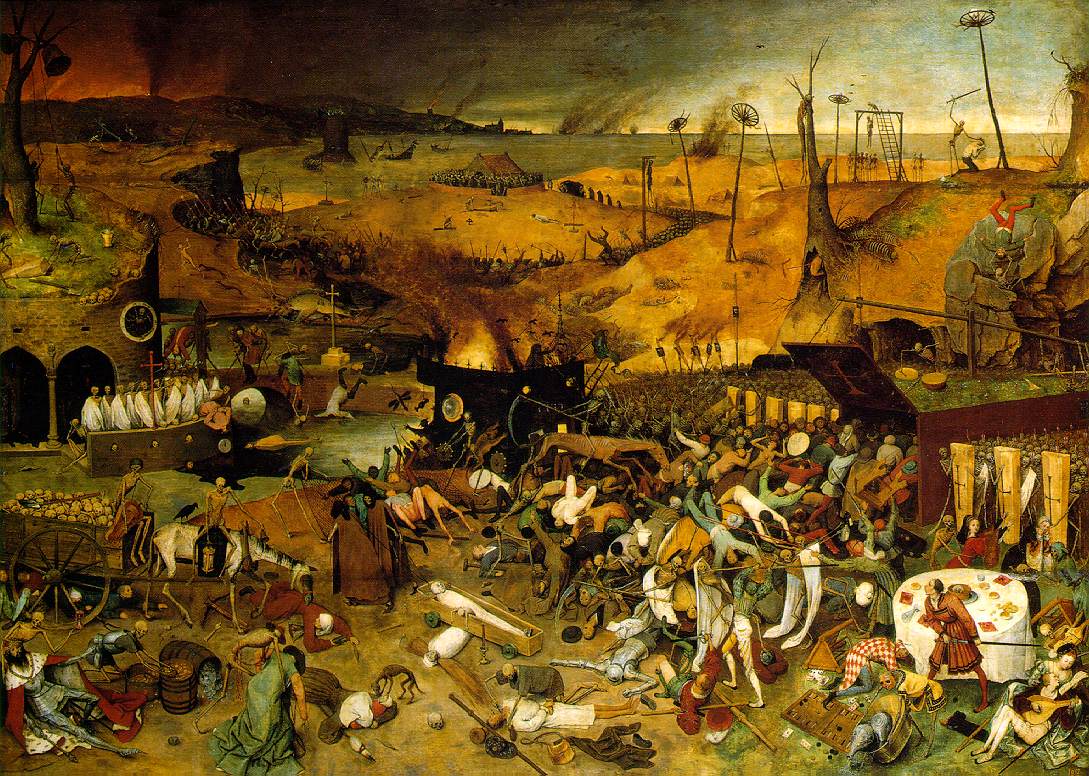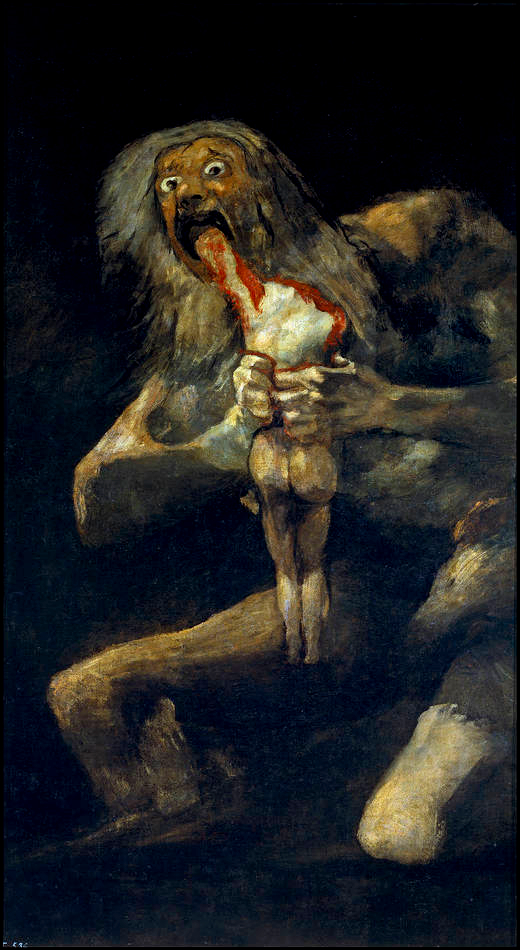At the Prado seeing works by El Greco and Bosch were particular highlights, but as we moved through the gallery spaces a particular theme emerged for me personally in the art—the fragility of man and the ravages of time. Two paintings particularly embodied this idea for me. One was Peter Brueghel’s The Triumph of Death.
This painting is a panorama of a burning landscape where Death and his minions have free reign of humanity. At the center is Death himself, scythe in hand, riding an emaciated horse, commanding a horde of skeleton soldiers who flood the entire landscape, each administering awful punishments. In one scene people are hanged on a makeshift gallows. In another people are beheaded. The whole ordeal is horrible, apocalyptic and gruesome, and most would describe it as morbid, but I saw in the painting a stirringly honest picture of an oft-forgot reality—that Death will come for us all. On this side of Eden, we are on the clock.
The idea of time leads me to the second painting. In Mark Buchannan’s The Rest of God, he describes the reality that we are slaves to time, and he illustrates this with the story of Chronos. Chronos was the Greek god of time, and in the myths, because he fears being usurped, he chooses to devour his children. Buchannan sees in this story our plight as humans—that we are all subject to time’s gnawing mouth. Goya captured this horrifying scene his painting Chronos (Saturn) Devouring His Children and when I saw the painting I instantly connected it with the Brueghel painting. They are really about the same thing. These paintings are vivid, if macabre reminders, that as children of Adam, we are slaves to time, and that in many ways time does devour us.
I know this is true in my own work, how there is never enough time to accomplish everything you think to do or even everything you have to do. But work isn’t the only thing that time devours. On this trip I came in thinking I would have scads of time to read, to blog, to reflect, and to see everything that I wanted, but it hasn’t been the case. In everything you always have to choose what you really want and even then you mostly run out of time. Both these paintings were reminders to me that in God’s scheme of things, we are no longer enslaved to time. Yes, death will come, but it will have no sting because there is a world coming were time does not exist and we will not decay. Sometimes it takes a glimpse of horror to remember that.


